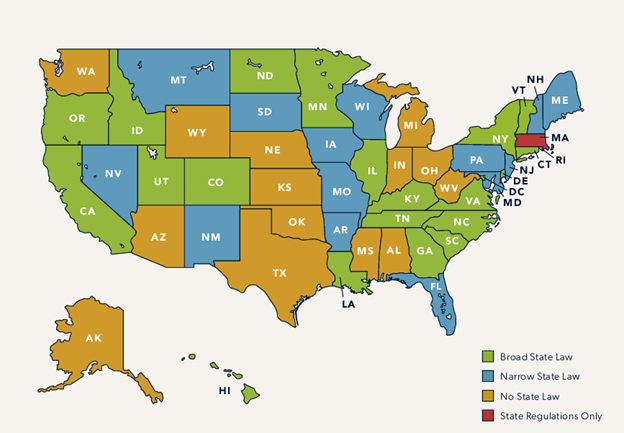Michigan may be joining a growing number of states in tightening regulations around automatic renewal provisions in consumer contracts. On August 27, 2025, the Michigan House introduced HB 4826, a bill aimed at strengthening consumer protection by requiring clear disclosure of automatic renewal provisions in consumer contracts.
If enacted the law would apply to any contract for the sale or lease of a service or good to a consumer that includes an automatic renewal provision, meaning the consumer contract is renewed for a period of more than one month unless notice is given.
Key Provisions of HB 4826
1. Clear Disclosure Requirements
- Automatic renewal terms in consumer contracts must be disclosed clearly and conspicuously in at least 14-point type.
- Disclosures must include:
- That the contract will automatically renew;
- Duration of the initial term and renewal periods;
- Pricing details for both initial and renewal terms, including promotional pricing and post-trial charges;
- Any changes in terms upon renewal;
- Cancellation procedures, including for free trials;
- That cancellation is allowed up to the day before renewal; and
- Contact methods for cancellation.
2. Renewal Notice Requirements
- Contracts renewed for more than two months require electronic notice sent to consumers 30 to 60 days before the last cancellation date. The notice must include renewal terms, cancellation procedures, and methods of contact.
3. Ongoing Subscription Notifications
- Businesses must notify consumers every 6 months that a consumer is subscribed and the consumer will continue to pay if they take no action.
4. Consumer Protections
- Consumers must be given at least 30 days to cancel after receiving a renewal notice.
- Businesses must honor timely cancellations.
- Businesses cannot charge penalties or fees for cancellation at the end of any term or trial.
- Cancellation mechanisms must be easy-to-use with prompt confirmation.
5. Enforcement and Applicability
- Contracts violating the law will be voidable by the consumer.
- The law applies to consumer contracts that are entered into, renewed, or modified after its effective date. It does not extend to regulated telecom and broadband services, insurance-related contracts, or those providing pro-rata refunds upon cancellation.
Why It Matters
This bill reflects a growing national trend toward regulating subscription-based services and auto-renewal practices. Although the FTC’s Click-to-Cancel Rule was vacated by the Eighth Circuit, Michigan’s move signals that state-level enforcement remains active and evolving. Several states have already enacted auto-renewal laws, and several more have proposed laws and regulations on the books.

[Image created with MapChart]
For a business that sells goods or services in multiple states, complying with each state’s auto-renewal law can become cumbersome and confusing since each state has its own twists on what is required.
For example:
- Colorado requires express written consent for a renewal term of more than 1 year.
- Minnesota requires that businesses send written notice via mail or email at least once per calendar year for ongoing subscriptions detailing the terms of service.
- Missouri requires that duration of a contract be disclosed in boldface type of a minimum size of 14 points.
- New Mexico requires disclosures to be in at least 10-point font.
- North Carolina requires disclosures to be in 12-point bold typeface if the terms change once auto-renewed.
- South Carolina requires businesses to notify consumers of a renewal at least 15 days, but not more than 45 days, before the renewal date.
- Tennessee requires business to send confirmation of cancellation within 3 business days of receiving a cancellation request.
- Vermont requires that disclosures appear in bold face type if the term is 1 year or longer.
Key Strategies for Compliance
Companies should:
- Implement robust compliance strategies that account for these state-by-state nuances in auto-renewal laws;
- Regularly review contract templates, customer communication protocols, and cancellation processes to avoid inadvertent violations and costly enforcement actions; and
- Monitor legislative developments as states introduce new requirements or change existing ones.